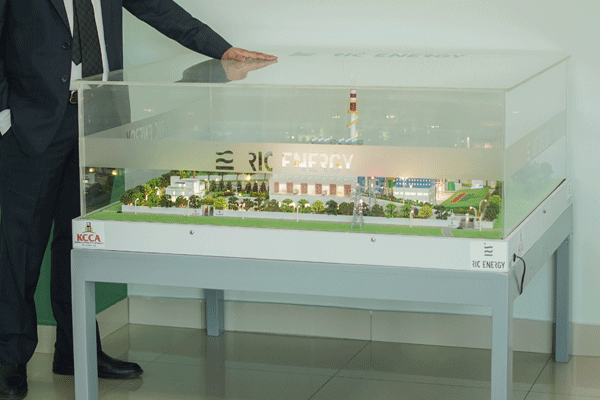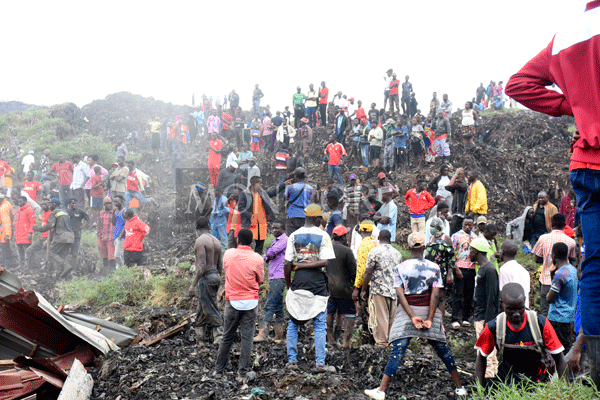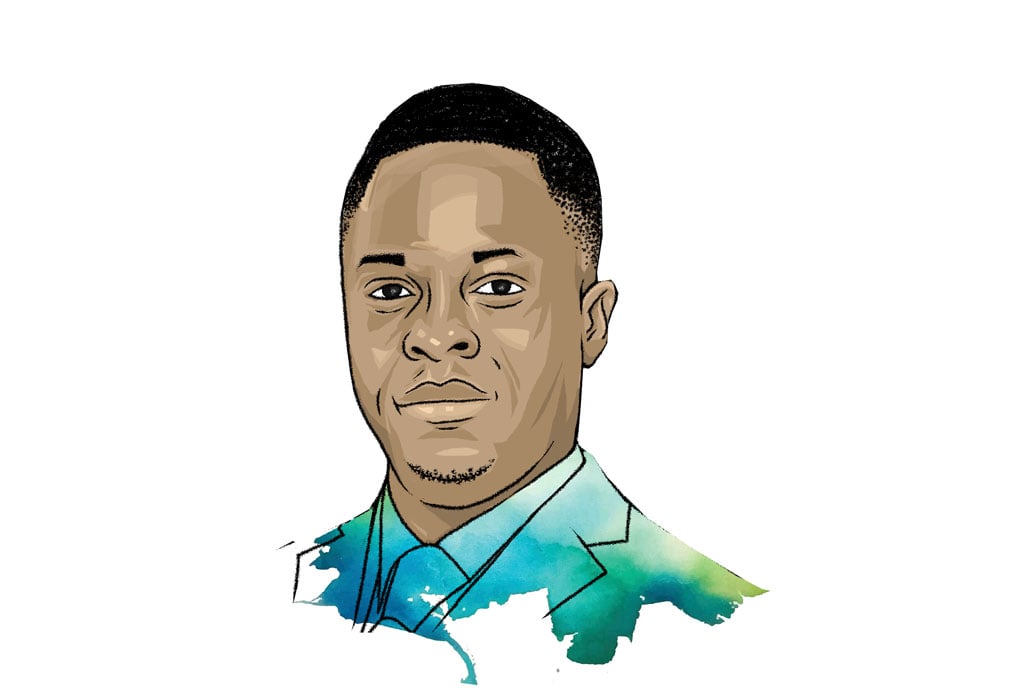
KCCA says they have already discussed with some companies as it fast-tracks the development of the waste-to-energy plant in Ddundu, Mukono District. Photo / Courtesy
Kampala Capital City Authority (KCCA) has said it is fast-tracking the development of a waste-to-energy plant in Ddundu, Mukono District.
Mr Dan Muhumuza Niweabine, the KCCA head of public and corporate affairs, yesterday said Ddundu land would not be a “dumping site but a centre where we can convert waste-to-energy and other valuable material such as manure and building materials”.
“We have had discussions with different companies such as RIC Energy. However, some other entities and individuals have shown that they also have solutions. We have to go through a process,” he said, adding: “Most of these entities [such as] RIC Energy are pre-financed or have their investments. We need permission from the Ministry of Finance because it involves paying back the money,” he said in response to questions regarding the progress of the project.
Mr Niweabine, however, declined to give timelines, noting that they were fast-trucking the problem of waste in the city with a waste-to-energy plant being one of the flagship projects, which will either be done by a single company or more or a joint venture.
This comes after revelations that discussions for the development of a waste-to-energy plant in Ddundu, land which was acquired by KCCA in 2016 at Shs5b, have been ongoing as far as 2019.
Mr Rajesh Chugh, the chief executive officer of RIC Energy Asia, and Africa, a Spanish energy firm with operations in Uganda, said in an interview this week that they had first presented a plan for waste management in 2019, but the discussions were disrupted by Covid-19.
“However, last year, we engaged KCCA and Ministry of Energy again and proposed a waste-to-energy plant that would provide a technical and commercial long-term solution to the problem of municipal solid waste management in and around Kampala,” he said, noting that the proposed plant is a phased investment of $200m (Shs732b), with $100m (Shs366b) invested in each of the two phases.
Monitor also understands that President Museveni, in a November 1, 2023 letter had directed former KCCA executive director Dorothy Kisaka to expedite the implementation of the energy-to-waste project and “the Ministry of Energy and Electricity Regulatory Authority (ERA) to provide requisite licensing for effective implementation of the project”.
The directive, the letter indicates, had come after the President on October 19, 2023, chaired a meeting with RIC Sun Investments (RIC Energy) and other stakeholders, in which he approved a plan by KCCA to commence a solid waste management project for Kampala City and Metropolitan Area.
ERA chief executive officer Ziria Tibalwa Waako on Tuesday indicated that they were in the process of providing the prerequisite energy license to VIDA Energy, a subsidiary of RIC Energy, to develop a 20-megawatt Ddundu waste-to-energy power project.
ERA, on October 4, published a notice, in which it invited stakeholders to inspect an application by VIDA for onward award of necessary licensing.

Mr Chugh says RIC first proposed waste management solutions in 2017, but was disrupted by Covid-19. Photo / Courtesy
We have proposed to KCCA a Shs732b waste-to-energy plan
Mr Chugh says RIC first proposed waste management solutions in 2017 but was disrupted by Covid-19. He gives more highlights on the matter as below.
What is RIC Energy?
We have been in Uganda for more than seven years and have operations in more than 20 countries. Our headquarters are in Madrid, with regional offices in India, New York, Mauritius, and Uganda.
We mainly deal in solar PV, battery energy storage, transmission and distribution, green hydrogen, bioenergy, biogas, biomethane, waste management, and waste-to-energy and have a global portfolio of more than 10 gigabytes of solar PV, 1 gigawatt-hour battery storage, 100 megawatts of biogas, and 2GW H2.
We have in-house expertise in project development, financing, engineering, construction, and operations of energy projects, enriched by specialized technical team employed in India, Spain, US, and Uganda, among others.
What is your interest here?
Our Africa operations commenced in Uganda in 2017, after we signed an engineering, procurement, and construction contract for a 23-megawatt peak solar PV plant in Kabulosoke.
Thereafter, we co-developed, financed, and constructed a 23-megawatt peak solar park in Nkonge, Mubende. We have since expanded our Africa energy business to more than 15 countries. Our experience in Uganda has, therefore, given us insights not only in the energy market but also allowed us to see firsthand the challenges of municipal waste management.
In 2019, we embarked on discussions with authorities in Uganda related to alternative solutions for waste management, but we were disrupted by Covid-19.
However, last year, we engaged KCCA and the Ministry of Energy again and proposed a waste-to-energy plant that would provide a technical and commercial solution to the problem of municipal solid waste management in and around Kampala.
What happened then?
After a series of presentations and discussions with concerned stakeholders, we received approval to proceed to the next steps leading to the implementation of the project. A directive from the President was issued in November 2023 directing the issuance of necessary licenses to enable us to proceed with construction.
We signed a memorandum of understanding with KCCA in December 2023 and since then we have conducted detailed technical studies (including monthly waste characterisation, quantification, and collection practices, studies related to the proposed land for the project in Ddundu, Mukono District such as geotechnical and hydrological, technical design and layout of the Waste to Energy Plant and key equipment technical specifications, among others.
We are now awaiting finalisation by the authorities of the key project agreements including waste supply, land lease, and power purchase agreement, among others.
You talk about energy, have you engaged authorities in the electricity sub-sector?
Yes, we have applied and awaiting a permit from Electricity Regulatory Authority to engage UETCL for power purchase agreement negotiations and also, agreements from KCCA related to waste supply and land lease.
In terms of technology, what are we looking at?
We have proposed technology that has no risk of failure is in line with the composition of waste in Kampala, is immediately deployable, and is compliant with global emission standards. Compared to the current dumping practices, our proposal will substantially mitigate the negative impact on the environment, health, and safety of the people
You have been here for seven years. Have you, beyond energy, invested in waste management?
Yes, we have committed more than 1,000 waste skips – some already dispatched - and 20 waste collection trucks to KCCA, for improving waste collection in Kampala.
Does the project have direct benefits for Ugandans?
Beyond the direct impact on securing a better environment, the project will generate direct employment for more than 500 people. We are also setting up, as part of our waste-to-energy plant, a technical training facility to enable skills and knowledge transfer.
How different are you from the other companies that have shown interest in putting up a similar project?
We have the experience, both here and elsewhere, which others might not have. We have been actively engaged in Uganda’s energy sector and have an ideal mix of experts from Uganda, India, and Spain already deployed here to ensure that the project is completed faster.
We have also completed all studies, and secured investment for the project, which we plan to complete in a maximum of 18 months after signing all agreements.
How will you recoup your investment?
We have proposed a single tariff, which is based on the sale of energy generated by the waste-to-energy plant. The proposed tariff is in line with what is normally paid for similar waste-to-energy plants worldwide. What we have is a single all-inclusive tariff, which is approved to be partly paid by UETCL and partly subsidised by KCCA from savings on the current costs of waste handling. Any by-product generated as part of the process is revenue for KCCA.
What is the investment like?
About $100m in phase one and an additional $100m in phase two.
The tariff we have proposed is just enough to get us a minimum project return any investor would expect.
Municipal waste-to-energy tariff is not comparable with other sources of energy, which have different dynamics, investment, and operating costs.
Have you considered landfill alternatives?
In fact, we have proposed a sanitary landfill solution coupled with our waste-to-energy project to KCCA using the same land in Ddundu.
Considering the growth in the quantum of waste in Kampala, our two solutions combined, at the same site will eliminate any challenges related to municipal solid waste management in Kampala, at least for the next 30 years.
Sanitary landfill solution is a globally accepted alternative for municipal waste management, but it comes with a cost, yet its revenue potential is not the same as waste-to-energy plants. Thus, we have proposed this as a solution that can combine with the waste-to-energy project, providing a long-term solution to waste challenges in Kampala.





